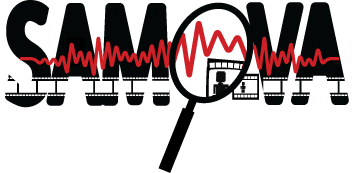Assessment of adult speech disorders: current situation and needs in French-speaking clinical practice
Résumé
Introduction: Speech assessment methods used in clinical practice are varied and mainly perceptual and motor. Reliable assessment of speech disorders is essential for the tailoring of the patient's treatment plan. Objective: To describe current clinical practices and identify the shortcomings and needs reported by French-speaking clinicians regarding the assessment of speech disorders in adult patients. Methods: Data were collected using an online questionnaire for French-speaking speech and language pathologists (SLPs) in Belgium, France, Switzerland, Luxembourg, and Maghreb. Forty-nine questions were grouped into six domains: participant data, educational and occupational background, experience with speech disorders, patient population, tools and tasks for speech assessment, and possible lacks regarding the current assessment of speech disorders. Results: Responses from 119 clinicians were included in the analyses. SLPs generally use " a la carte" assessment with a large variety of tasks and speech samples. About one quarter of them do not use existing assessment batteries. Those who do mostly use them partially. Pseudo-words are rarely used and are absent from standardized batteries, in contrast to the major use of words and sentences. Perceptual evaluation largely prevails (mainly overall ratings of speech "intelligibility", "severity," and "comprehensibility" and percent-correct phonemes), whereas the recording equipment for acoustic measures is not standardized and only scarcely described by the SLPs. The most commonly used questionnaire to assess the functional impact of the speech disorder is the Voice Handicap Index; one quarter of the SLPs does not use any questionnaire. Overall, the available tools are considered only moderately satisfactory. The main reported shortcomings are a lack of objectivity and reproducibility of speech measures; exhaustiveness and consideration of specific speech parameters (prosody, speech rate, and nasality); practicality of the assessment tools. Conclusion: This study highlights a lack of standardization of the speech assessment in French-speaking adults and the need to offer new reliable tools for an optimized, accurate speech assessment. The automation of these tools would allow for rapid, reproducible, and accurate measures.
Fichier principal
 Assessment of adult speech disorders current situation and needs in French speaking clinical practice.pdf (2.38 Mo)
Télécharger le fichier
Assessment of adult speech disorders current situation and needs in French speaking clinical practice.pdf (2.38 Mo)
Télécharger le fichier
Origine : Fichiers éditeurs autorisés sur une archive ouverte
